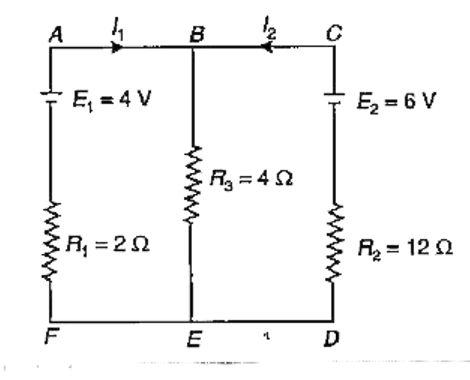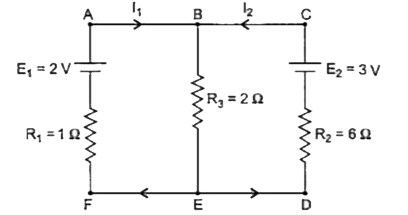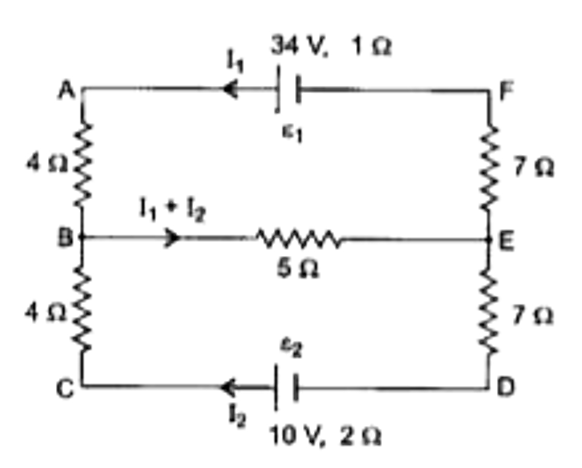On which conservation principle is Kirchhoff.s second law of electrical networks based ?
Step-by-Step Solution:
1. Understanding Kirchhoff's Second Law: Kirchhoff's second law states that the algebraic sum of all voltages in a closed loop of an electrical circuit is equal to zero. This can be mathematically represented as:
n∑i=1Vi=0
where Vi represents the individual voltages in the loop.
2. Identifying the Principle: To determine the principle on which this law is based, we need to consider what the law implies about energy in the circuit.
3. Relating Voltage to Energy: Voltage (or electric potential) is defined as the amount of energy per unit charge. This means that when we talk about voltages in a circuit, we are essentially discussing how energy is distributed among the charges moving through the circuit.
4. Conservation of Energy: Kirchhoff's second law implies that as charges move around a closed loop, the total energy supplied (from sources like batteries) is equal to the total energy used (by resistors, capacitors, etc.). This reflects the principle of conservation of energy, which states that energy cannot be created or destroyed, only transformed from one form to another.
5. Conclusion: Therefore, Kirchhoff's second law is fundamentally based on the principle of conservation of energy.
Final Answer: Kirchhoff's second law of electrical networks is based on the conservation of energy.
---
n∑i=1Vi=0
where Vi represents the individual voltages in the loop.
Similar Questions
Which conservation principle is involved in Kirchhoff.s first law of electric circuits ?
View SolutionKirchhoff's first law of electricity follows.
View SolutionIn the circuit given, E1andE2 are two cells emfs 4 V and 6 V respectively, having negligible internal resistance. Applying Kirchhoff.s law of electrical networks, find the values of I1andI2.

View SolutionIn the circuit shown in figure below, E1 and E2 are two cells having emfs 2 V and 3 V respectively, and negligible internal resistances. Applying Kirchhoff.s laws of electrical networks, find the values of currents I1 and I2.

View SolutionIn the circuit shown in figure below, E1 and E2 are two cells having emf 2 V and 3 V respectively and negligible internal resistances. Applying Kirchhoff.s laws of electrical networks, find the values of currents I1 and I2.
View Solutionε1andε2 are two batteries having e.m.f of 34V and 10V respectively and internal resistance of 1Ωand2Ω respectively. They are connected as shown in figure below. Using Kirchhoff.s Laws of electrical networks, calculate the current I1andI2

View SolutionKirchhoff's first and second laws for electrical circuits are consequences of:-
View SolutionOn which principle is refrigorator based?
View SolutionOn which principle is photocell based?
View SolutionState Newton.s second law of motion.
View Solution
